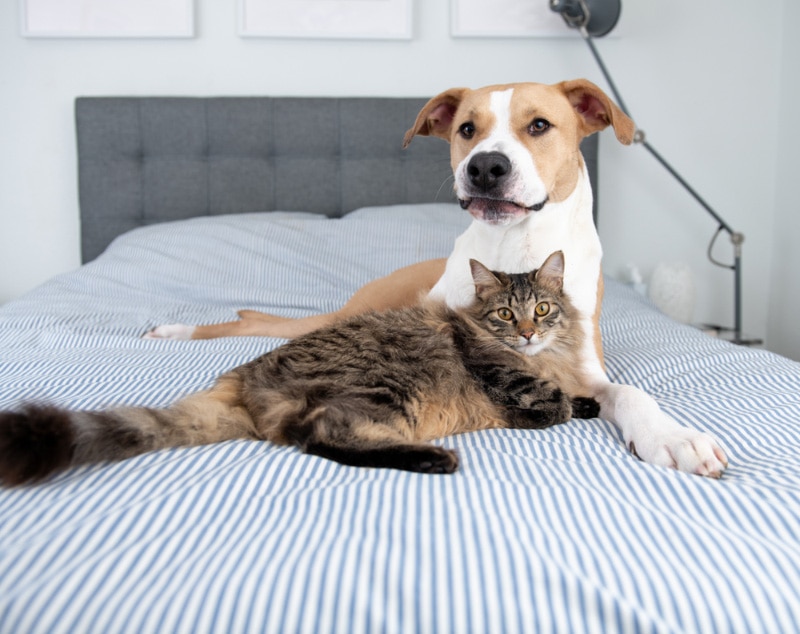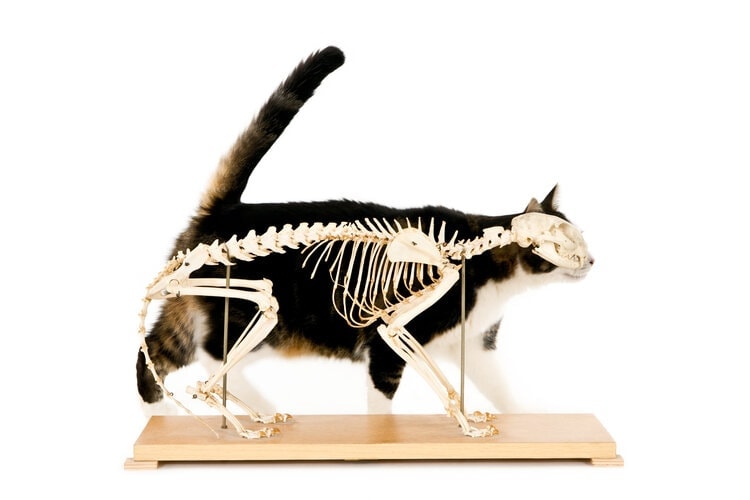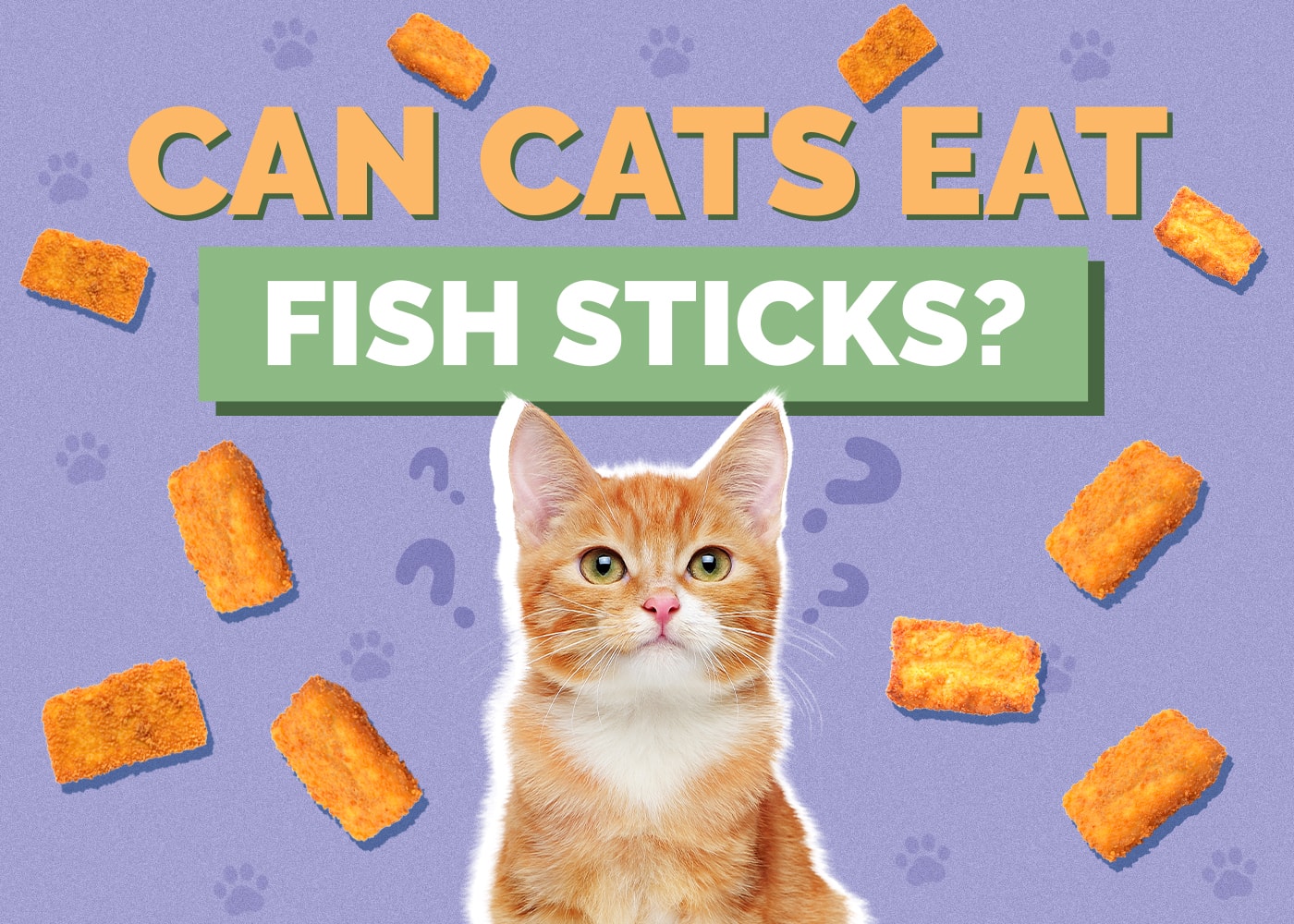Can Cats Eat Tomatoes? Vet-Reviewed Facts & Safety Tips
By Dean Eby
Updated on
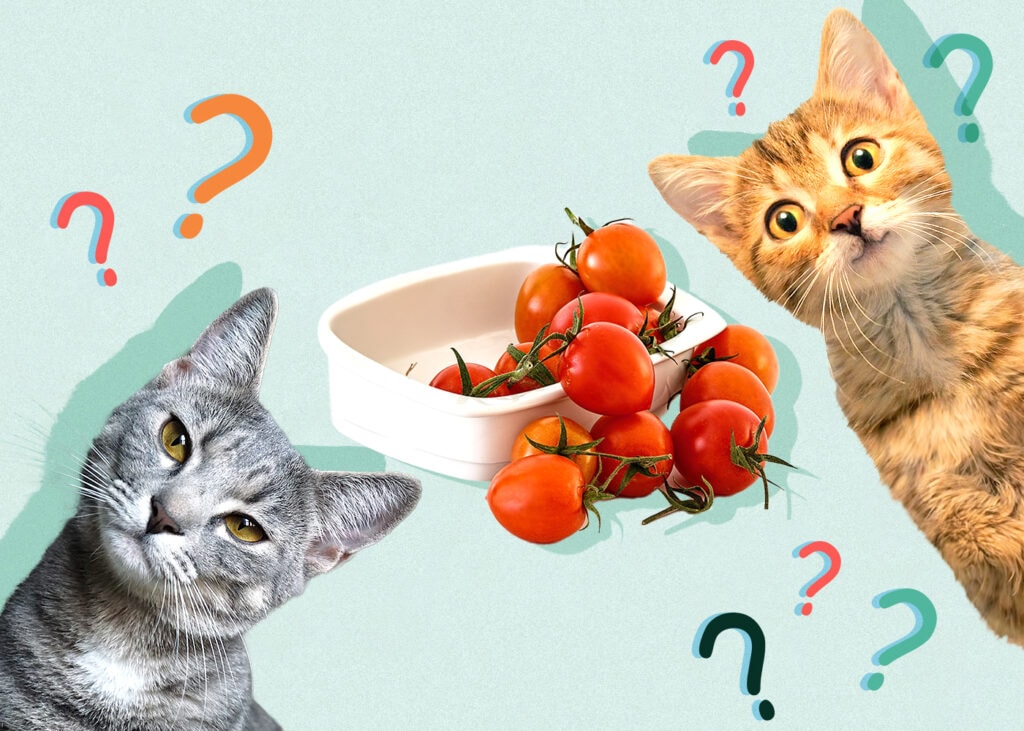
When it comes to the foods that you can and can’t feed your cat, we usually hope for very clear lines and definitive answers. You want to know whether a food is safe or not, and gray areas are not comforting when offering new food to your cat. Tomatoes are a food in that gray area. If you look around at different information sources, you’re likely to find a few different answers regarding the toxicity of this plant for felines. But what is the truth?
The truth is a bit complicated. You might read in some places that all tomatoes are poisonous for cats. At the same time, you might find tomatoes listed as an ingredient in cat foods. Both of these can’t be true simultaneously, can they? Well, sort of. As it turns out, ripe tomato flesh is generally safe for cats to consume, but there is no reason for them to do so, as they will not benefit from it in the slightest.
However, other parts of the tomato plant and tomato flesh that is not fully ripe will pose a hazard for a housecat, as they contain toxic compounds solanine and tomatine.
Sounds a little confusing, right? Don’t worry. Everything will be clear by the end of this article, and for any further questions or uncertainties, please consult with your veterinarian.
Are Tomatoes Toxic to Cats?
When discussing the toxicity of tomatoes as they relate to cats, you have to make some distinctions between the different parts of the plant and tomato. Furthermore, you must discuss ripe and unripe tomatoes separately. In some cases, tomatoes can be toxic to cats, and so can the other parts of the tomato plant.
But tomatoes aren’t always toxic for cats. At times, tomatoes may be safe for cats to eat.
Can Cats Eat Ripe Tomatoes?
Ripe tomatoes are the only safe tomatoes for cats to consume in strict moderation and only occasionally, if at all. If your cat eats a piece of a completely ripe tomato, they shouldn’t suffer any serious ill effects. You still shouldn’t overfeed tomatoes to your cat, as they can cause stomach discomfort. Cats are obligate carnivores and can’t digest plant matter as well as humans or dogs, and they will not benefit from eating the tomato in the slightest.
Although it’s generally believed that there’s nothing in a ripe tomato that’s toxic or dangerous for your cat to eat, it is still best to refrain from offering them. There are many other species appropriate treats that are safe and healthy for cats.
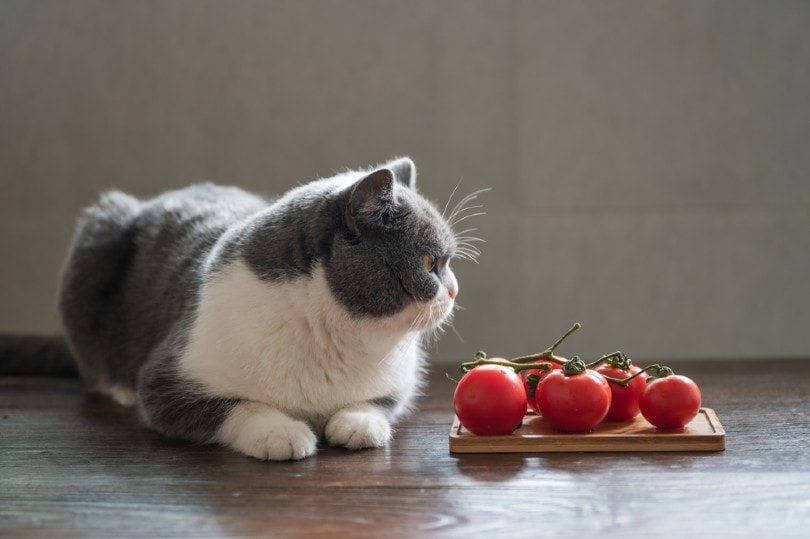
Can Cats Eat Unripe Tomatoes?
This is where things start to get interesting. Tomatoes are part of the nightshade family of plants, which includes nightshade, potatoes, eggplants, and more. These plants produce toxic alkaloids that can be harmful or deadly for many creatures if ingested. However, the ripened vegetables of these plants have very low concentrations of these dangerous toxins. Rather, the toxins are mainly concentrated in the plant and the fruits that aren’t yet ripe.
Stems, leaves, roots, and fruits not yet ready for harvest are all sources of toxins that could easily harm your cat. Unripe tomatoes are not safe for cats to consume.
Are Tomato Plants Poisonous to Cats?
Similar to unripe tomatoes, all the other parts of the tomato plant contain dangerous toxins that could potentially harm your cat. It may be ok for your cat to eat a very small amount of ripe tomato flesh, but they should never get the chance to consume any part of the tomato plant.
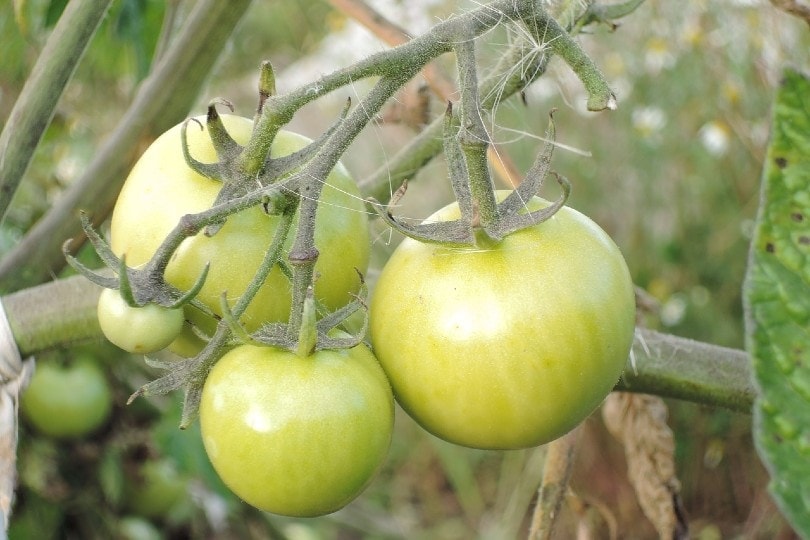
Tomatine and Solanine
Glycoalkaloids are compounds present in the plants from the nightshade family like eggplants and potatoes, as well as tomatoes, and all are considered toxic to cats and dogs. Solanine is an alkaloid present in the potato plant, while the ASPCA also reports it in the tomato plant as the compound responsible for signs of toxicity. Still, tomatine is another compound present in tomatoes, and it decomposes significantly as the fruit ripens.
Most nightshade plants produce solanine, which is toxic for animals that consume it. Tomato plants, on the other hand, seem to contain more tomatine than solanine. Granted, they still contain solanine, but only in small amounts; mainly, tomatoes have tomatine.
While tomatine is still a toxic alkaloid that can be harmful in high doses, it’s similar to solanine but seems to be less toxic when administered orally in comparison to some glycoalkaloids, based on several studies. This means that tomatoes and tomato plants are potentially less toxic than other nightshade plants, though you still don’t want your cat to consume any part of the tomato plant, other than the ripened fruit.
Side Effects of Cats Eating Tomatoes
Any time you introduce a new food to your feline, it could result in stomach discomfort. This is especially true of any fruits, vegetables, or plant matter since cats don’t have the same ability to digest plants that we do. If you feed too much tomato to your cat, it could result in diarrhea.
Things look a little worse if your cat happens to eat any part of the tomato plant aside from the ripe fruit. Should your cat eat part of the tomato plant or unripe fruit, it could cause severe stomach pain, hypersalivation, loss of appetite, weakness, depression, vomiting, diarrhea, dilated pupils, reduced heart rate, and more.
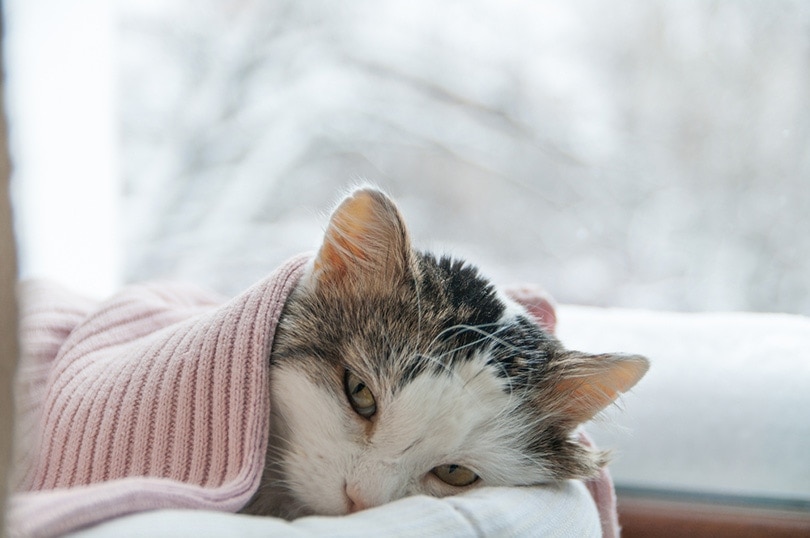
What Should You Do if Your Cat Eats a Tomato Plant?
Unfortunately, accidents do sometimes happen. While your cat shouldn’t be too attracted to the tomato plant, if your neighbor is growing some in their garden and your inquisitive cat happens to consume some, it could become a problem. If such a situation occurs, you should seek professional veterinary advice as soon as possible.
Once you get to the vet or animal hospital, your vet may recommend inducing vomiting. However, this is something that only a professional should attempt. You shouldn’t try to get your cat to vomit on your own. More than likely, you’ll just end up hurting your cat and making things even worse. Instead, call the vet as soon as you determine that your cat has consumed part of a plant that it shouldn’t have and let the professionals handle it from there. They’re better equipped to handle such situations.
Are Tomatoes Safe for Felines?
Ripe tomatoes are safe for cats to eat in small amounts, but they will be better off without them. Any new food can cause stomach pain and gastrointestinal issues for your feline, so be sure to offer ripe tomatoes in moderation, if at all. There are more appropriate treats for your feline. Never let your cat eat a tomato that’s not fully ripened or any part of the tomato plant.
Since the tomato plant is part of the nightshade family, it produces toxic alkaloids that could be hazardous if your cat consumes any part of the tomato plant or an unripe tomato.
Looking for more tips on what your cat can eat? Check out:
Featured Image Credit: _Alicja_, Pixabay



